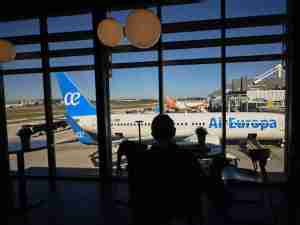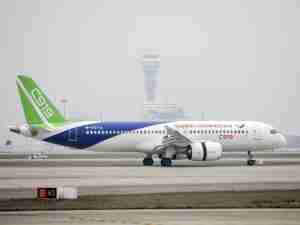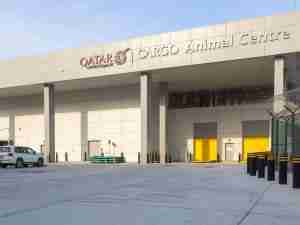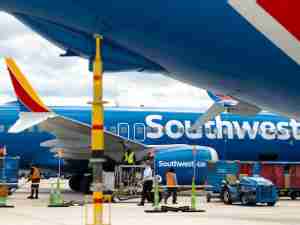| Rump Air Berlin | ~75 aircraft | 17 A330s, 20 Q400s, rest A320 family | Main bases Dusseldorf and Berlin | Lufthansa and possibly EasyJet interested |
| Lufthansa lease | ~38 aircraft | 33 A320-family leased to Eurowings, five to Austrian Airlines | Eurowings bases plus Vienna | Lufthansa owns some planes; may take over workforce |
| Leisure carrier | ~35 aircraft | 21 A321s at Niki, 14 Boeing 737s leased from TUIfly | Vienna-based | TUI, Condor have an interest |
Lufthansa Set to Add Low-Cost U.S. Routes With Air Berlin Swoop
By: | Aug 17 2017 at 07:17 AM | Air Cargo
Air Berlin Plc’s insolvency could open the way for Deutsche Lufthansa AG to add new hubs for inter-continental flights while allowing short-haul discount specialist EasyJet Plc to boost its presence in the German capital.
The ailing carrier’s Berlin and Dusseldorf bases would provide Lufthansa’s lower-cost Eurowings arm with a chance to expand a long-haul network currently limited to Cologne-Bonn airport and a fledgling operation in Munich. At the same time, slots in Berlin used for short-haul services could help EasyJet narrow the gap to Ryanair Holdings Plc in Europe’s biggest economy.
Air Berlin filed for insolvency Tuesday as leading shareholder Etihad Airways PJSC of Abu Dhabi pulled the plug on funding the unprofitable carrier, which will rely on a government loan to keep flying for the next three months. Lufthansa, Germany’s biggest airline and the No. 3 in Europe, revealed that it was in talks about buying parts of its national rival, while EasyJet has also expressed an interest, according to people familiar with the matter.
A deal could be “very attractive” for Lufthansa if it can acquire elements of Air Berlin, which has 8,600 workers, without taking on the company’s debt or staff contracts, Sanford C. Bernstein & Co. analysts including Daniel Roeska said in a note. There’s also a “strategic rationale” behind EasyJet making a move, and the U.K. carrier has the business model to make a transaction work, they said.
While the 150 million-euro ($175 million) loan should get Germans home from their summer vacations, Air Berlin will likely run out of cash at the end of the three-month period, setting a deadline for negotiations, Bernstein said.
Lufthansa, which is unlikely to be able to buy all of Air Berlin for antitrust reasons, already has strong links to its one-time arch rival following a deal to lease 38 of the smaller carrier’s Airbus SE A320-series planes plus crews for six years. Some 33 of those aircraft are slated for deployment with Eurowings and five with the group’s Austrian Airlines division.
At the same time, Air Berlin planned to offload its own Austrian unit Niki, which has 21 A321 jets, by combining it with 14 aircraft from TUI AG. Though the plan suffered a setback in June when Europe’s largest tour operator failed to agree on terms with Etihad, TUI said Tuesday that it’s ready to participate in Air Berlin’s restructuring. Thomas Cook Group Plc’s Condor arm, which books seats on Air Berlin flights, also said it could play an “active role” in a rescue plan. Lufthansa is also interested in Niki, people familiar with the talks said earlier this week.
Overall, Lufthansa could end up taking as many as 90 planes from Air Berlin, with a deal coming as soon as next week, Sueddeutsche Zeitung reported Thursday, citing unidentified people familiar with the discussions. EasyJet is also interested in Niki, the newspaper said.
Air Berlin’s Swiss Belair arm, which has seven A320-family planes, is set to close at the end of the summer, according to an announcement in March, while the company was due to full control of regional affiliate LGW, with 20 Bombardier Inc. Q400 turboprops.
The restructuring steps were designed to trim the Air Berlin fleet to just 75 jets from almost 150, leaving it focused on inter-continental routes from Berlin and Dusseldorf, fed by shorter European flights, plus minor hubs in Munich and Stuttgart. It currently serves about 20 long-haul destinations with 17 Airbus A330 wide-body jets, with the focus on the U.S. and the Caribbean.
Air Berlin Overview
As Air Berlin’s doesn’t own its aircraft, the main value for suitors may be in its landing rights, which are usually distributed by a national coordinator after airlines apply for them. German Economy Minister Brigitte Zypries, though, said slots may be sold off by the insolvency administrator to raise funds.
Lufthansa’s global strategy is increasingly built around beefing up Eurowings, initially created to defend its European turf against the likes of Ryanair by taking over short-haul routes outside of the main brand’s Frankfurt and Munich hubs.
While the unit has been swollen by the Air Berlin lease deal and the acquisition of Brussels Airlines, the transfer of existing short-haul routes from the parent airline has been slowed by union opposition, putting new emphasis on expanding long-haul services. By the end of this year Eurowings will have more than 160 aircraft spread across 11 bases, including a fleet of A330s.
At the very least, Lufthansa is likely to want to safeguard the leased Air Berlin planes, which fly mainly on Mediterranean routes, according to Bernstein, and could use that structure to add more operations from the smaller carrier.
Lost Ground
For EasyJet, acquiring parts of the Air Berlin short-haul business would help make up lost ground in Germany, where it lags well behind Ryanair. The Luton, England-based company announced in June that it will shut a base in Hamburg, where it stations four A320-series aircraft, at the end of the summer season, leaving only its Berlin operation, which utilizes 12 planes.
Ryanair locates nine jets in Berlin, but also has eight other bases in Germany including Cologne-Bonn and Hamburg, as well as Frankfurt, where it will station seven planes this winter in a direct challenge to Lufthansa at its primary hub. A 10th base will open in Memmingen, outside Munich, in September.
Complicating matters, EasyJet’s Berlin flights operate out of Schoenefeld airport rather than the main Tegel hub used by Air Berlin. Current thinking calls for Tegel to be closed when the new and long-delayed Berlin Brandenburg hub opens, though those plans are under review.
Whether EasyJet or Dublin-based Ryanair buys Air Berlin assets, both are likely to benefit from the German No. 2’s exit, with one competitor less in the market, Per-Ola Hellgren, an analyst at Landesbank Baden-Wuerttemberg, said in an investor note. Eurowings has a higher cost base than both carriers, he said.
Progress on a carve up of Air Berlin could be rapid, according to Bernstein’s Roeska, with Lufthansa keen to bolster its defenses against low-cost carriers and the German government eager to protect jobs in an election year.
The alternative could make Germany “a clear target for imminent attack” by discounters, he said. “If there is no deal, and Air Berlin collapses, Lufthansa will be facing a large capacity gap in the German market at precisely the time Ryanair is looking to make good on its ambitious expansion.”











